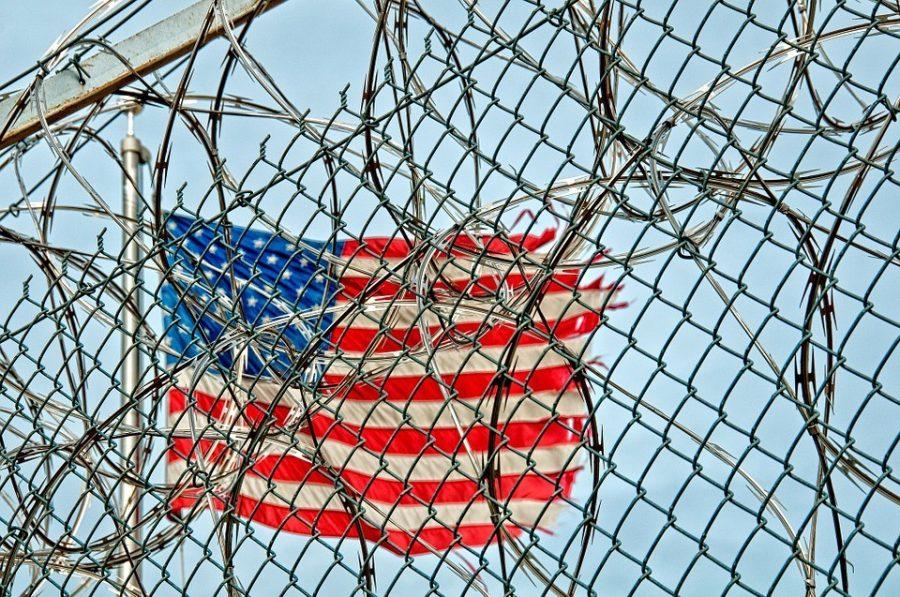Trump may have been afraid of a bit of rain and clueless on how to handle the California wildfire situation, but he has taken the first step to reforming some of the policies within our prisons.
The First Step Act is a criminal reform bill that will be going to the House with support from the President and prominent Democrats and Republicans. Like most bills, it has some questionable sections, but the bill is a step in the right direction.
The first part of the bill covers how to handle repeat offenders and their sentencing. “This bill amends the federal criminal code to direct the Department of Justice to establish a risk and needs assessment system to assess and classify the recidivism risk of prisoners; to guide housing, grouping, and program assignments; and to incentivize and reward participation in and completion of recidivism reduction programs and productive activities.”
RELATED: OPINION: Birthright citizenship is important for the United States
Based on the crime committed and the individual, the prisoner will be assigned to different blocks and activities while in prison. It will also help determine their eligibility for early release. Gone are the days of a three-time crack dealer bearing the same sentence as a two-time marijuana dealer. Each prisoner will be treated as an individual, which is crucial for rehabilitation.
Section 102 under the first title also states the Bureau of Prisons must implement this system, while section 103 states the implementation of the risk and needs assessment will be audited by the Government Accountability Office.
Title II allows correctional officers to carry concealed firearms on the premises of BOP property, as long as they are kept outside the security perimeter of a prison.
Title III contains one section as well, and it looks to change a controversial practice in American prisons: the constraining of pregnant and postpartum prisoners, which currently varies considerably within and across federal, state and local jurisdictions and agencies. The section states the federal prison system will no longer implement this practice, except in specified conditions. The vagueness of this section is troubling, to say the least. What are these special conditions?
There is another section in the bill that would benefit female prisoners. Title IV, Section 11 would finally provide sanitary napkins and tampons free of charge to prisoners.
RELATED: OPINION: Showing my appreciation for Martha McSally
Title IV is the longest title, with 13 sections, and is titled “Miscellaneous Criminal Justice”. This title secures rights for prisoners which were not previously given. The first section states that prisoners should be placed in a facility which is no more than 500 miles from their permanent address.
Section 2 would place low-risk prisoners on house arrest for their maximum sentence, while Section 3 will expand eligibility for early release of elderly prisoners. Section 4 hopes to make sure prisoners receive proper legal documentation, such as driver’s licenses and social security cards. Section 5 would allow BOP industries to sell products to certain non-profit organizations and the District of Columbia, giving prisoners work experience. Section 6 would have the BOP take de-escalation courses to better deal with hostile situations.
Heroin and opioid addiction is a big problem in the United States, and Section 7 would have the BOP report how well they are dealing with the addictions of their prisoners. The BOP will be given the ability to use medication-assisted methods, and this can also apply to prisoners serving a term of supervised release. Pilot programs would be put into place, creating a youth mentorship program and another that would help vulnerable animals.
The bill would also call for more supervision of certain offenders. Sex offenders under civil release will require more supervision under Section 9 of Title IV.
Section 10 will require data collection expansions for the National Prisoner Statistics Program. This will take into account a prisoner’s gender, race and ethnicity along with their offense. This would create a certain sort of census data to see the correlation between backgrounds and offenses.
As mentioned earlier, section 11 requires the availability of healthcare products, including tampons.
Section 12 would help continue the Prison Rape Elimination Act of 2003, having auditors make sure every prison is in full compliance with the act. This act was to keep information about sexual violence recorded and available to those in the prison. The act has helped in identifying the prison rapists, but it has done very little in preventing the transmission of STDs through sexual violence.
Section 13 would call for eight percent of the budget for the Justice and Mental Health Collaboration Program to continue the Omnibus Crime Control and Safe Streets Act of 1968, a bill that limited the ability of law enforcement to implement wiretaps and their admissibility in court. It also limited constitutional presidential powers that allowed the president “to take such measures as he deems necessary”. In addition, the act limited interstate handgun trades. The negative side of the original bill increased the FBI budget 10 percent to increase riot control training and help local police forces to obtain riot gear and training.
Some may call this a reasonable bill, and I myself believe the premise is agreeable. However, there are some concerns that may be raised due to the historic police brutality toward people of color. These are real concerns, but on the premise of a prison, guards should be able to protect themselves. The carrying of a firearm by guards on BOP property is not an issue for me, it is the concealed carry of a firearm which is an issue to me anywhere. I have no problem with open carry; it is the honest way to carry a firearm. This is why open carry being less accepted than concealed carry has always left me puzzled.
The First Step Act, for the most part, is a good bill. We must give credit where credit is due, and it is a positive sign that Trump seems to support this bill. We cannot take this away from him. Give the mule his carrot and continue to beat him with a stick down the right path until the 2020 election.
Follow Chuck Valadez on Twitter









